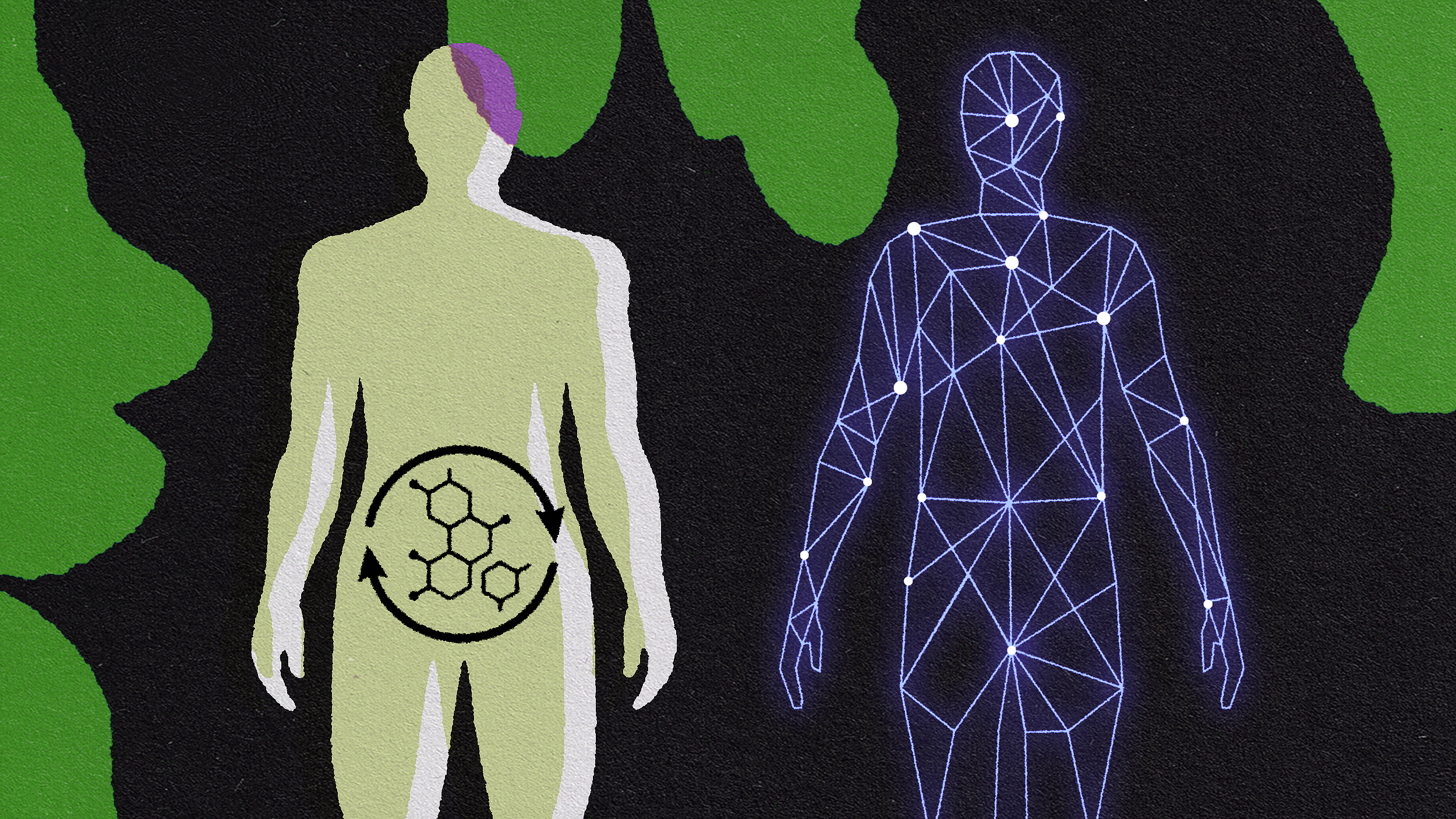At Big Think, we share actionable lessons from the world’s greatest thinkers and doers. This week, we’re partnering with Freethink to bring you amazing stories of the people and technologies that are shaping our future, from neuroscience breakthroughs to bionics and justice. Catch Freethink’s documentary-style videos here and on our YouTube channel this Monday, Wednesday, and Friday.
NARRATOR: This is the world's first bionic drummer. He's the fastest drummer in the world. He's also a pioneer of prosthetics. He's trying to control these robotic fingers with his mind.
JASON BARNES: Come on, dude. (beep) you.
ZACH: You're not doing that. I am.
BARNES: Come on, Zach.
ZACH: I'm working on it, man.
BARNES: What's going on, dude?
ZACH: I'm working on it.
NARRATOR: That dude helping is Zach, a grad student at Georgia Tech.
BARNES: It's working now.
NARRATOR: The goal of all this? To close the gap between man and machine. That is pretty cool.
NARRATOR: For Jason Barnes, music is life.
BARNES: What music does for me, I guess, is what drugs do for the everyday person. It's kind of an escape and a release for me. I've been a musician from a young age. I grew up watching my dad play guitar. Ever since then, drums have been my passion.
Unfortunately, when I was 22, I was involved in an electrical accident at work.
NARRATOR: A transformer exploded and shocked him with 22,000 volts of electricity, burning him badly. He and his doctors made the tough decision to amputate his arm.
BARNES: I felt at the time that I had lost everything I have, as far as being a musician goes. It's completely devastating, especially when that is your whole life and it's taken from you. Something like that could potentially be the end of your world.
NARRATOR: But in a way, Jason was just getting started.
BARNES: I drug my drum kit out of the garage and taped the drum stick to my stump. Still had bandages on it and everything, and proceeded to start playing the drums. That moment right there was a push point for me to accept what had happened and try and do something with it.
NARRATOR: He was on his way to becoming a bionic musician, so the next thing Jason did was build a custom prosthetic to play the drums. And they worked pretty well, but then he found out about this. This robot musician is actually improvising. It's listening and responding in real time, just like a human.
GIL WEINBERG: I've always been excited about creating something new, that will inspire and surprise me.
NARRATOR: That's the robot's creator, Gil Weinberg.
WEINBERG: I'm trying to create robots that will actually make you cry, that will blow your mind, send shivers down your spine.
NARRATOR: Gil heard about Jason.
WEINBERG: I received an email from someone who said, "I know an amputee drummer, and he needs to have a robotic arm to play music." I immediately was interested.
NARRATOR: And Gil and Jason teamed up.
WEINBERG: I'm very excited about the idea of human augmentation, about bringing the technology into the body and allow people to explore things that they couldn't before.
NARRATOR: Gil equipped Jason with this robot arm, and he pre-programmed some dope beats on it. That allowed Jason to do this. And just to be clear, this is not humanly possible. He's doing 40 hits per second. That's twice as much with one arm as any human could do with two. But the real challenge was how to get Jason to fully control a robot arm like this with his mind. First, they used a technology called EMG.
WEINBERG: EMG stands for electromyography.
NARRATOR: EMG reads electrical signals from the muscles in Jason's arm. Those signals start in his brain. This allows him to do some basic movements just by thinking about it.
BARNES: That was a game changer. I mean, we had no idea it was going to work as well as it did the first time I put it on. It was mind-blowing.
NARRATOR: But to give Jason even more control, they'd need a stronger and clearer signal from the muscles in his arm, so they're trying something new.
ZACH: This is where all the ultrasound research and magic happens.
NARRATOR: They're using ultrasound technology to help sensors see the signals Jason is sending much more clearly. Again, first from his brain, then to his muscles, then to the robot arm. If it works, he'll be able to control five different robot fingers with his mind, just as if it were his hand.
ZACH: Bah, bah-
BARNES: That's the ring finger-
ZACH:... and then it goes open.
BARNES: That's the thumb?
ZACH: Thumb, yeah.
BARNES: Index, middle finger, ring finger, pinky.
NARRATOR: This ultrasound technology has given Jason back what he lost. He and the team are paving the way for amputees to regain function again.
BARNES: I didn't think I would be where I am now, especially after my accident. Little did I know that five, six years later, we would be on the verge of developing some of the best technology for amputees. How could anybody foresee something like that?
NARRATOR: For Jason and Gil, this is just the beginning. They want to keep going with ultrasound.
WEINBERG: We're really interested in trying to put it all together in one self-contained arm that can travel, and bring it from the lab and into the world.
BARNES: Why stop here? Why not try and make it better? Imagine if we developed this technology and made it readily available for the everyday person and everyday amputee or someone with a disability.
WEINBERG: At the end of the day, this is all about trying new things and questioning everything, allowing people who have disabilities to show that they're not only not disabled, they're actually super-able.






